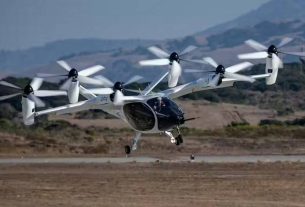Each year, the Royal Astronomical Society (RAS) recognises significant achievements in the fields of astronomy and geophysics in a ceremony celebrating different types of talent from research to education and outreach.
This year, several STFC researchers have joined the ranks of previous recipients such as Edwin Hubble and Stephen Hawking.
The recognised researchers have contributed to achievements such as the James Webb Space Telescope (JWST) and UK space weather monitoring.
Miraculous discoveries
The Prestigious Group Achievement Award has been awarded to the international Mid-Infrared Instrument (MIRI) team in honour of their work on JWST MIRI.
The award recognises the team’s impressive achievement in bringing such a lengthy and complex international project to successful fruition, and the scientific discoveries emerging from MIRI that their work has enabled.
MIRI was developed by an international team of people from institutes across 10 European countries and the US.
Professor Gillian Wright from the STFC UK Astronomy Technology Centre (UK ATC) and Professor George Rieke from the University of Arizona worked together closely to lead the team endeavour.
Members of the MIRI team at a meeting to prepare the post-commissioning calibration of the instrument. Credit: Jason Cowan
Crucial research
Gillian Wright, Director at UK ATC, and the European principal investigator on MIRI, said:
The team were convinced that MIRI was important and would bring new information over a broad range of science.
It is wonderful for everyone who worked on MIRI to see that their work is recognized by the Royal Astronomical Society.
I’d like to thank all those involved with this ground-breaking project for their hard work and dedication over many years.
MIRI was only possible through collaboration of people across Europe and the USA working together with a shared scientific goal.
Outstanding contributions
This year’s RAS Service Awards were presented to Professor Ian Robson and Professor Ian McCrea.
Professor Ian Robson is recognised for his energetic and influential contribution to astronomy for over 50 years, including directing observatories and institutes including UK ATC and STFC’s Technology Department.
Professor Ian McCrea currently serves as Head of Space Physics and Operations at STFC RAL Space and is recognised for his invaluable service to the UK and international space weather research community.
Most recently, Professor McCrea has spearheaded the £20 million UK Research and Innovation investment into the Space Weather Instrumentation, Measurement, Modelling and Risk programme.
Centuries of achievement
Professor Mike Edmunds, president of the Royal Astronomical Society, said:
It is an honour to recognise such remarkable talent in the fields of astronomy and geophysics.
Exactly 200 years ago we awarded the first Gold Medals to Charles Babbage and Johann Franz Encke.
At the time, one of the main objectives of the Astronomical Society of London (it became the RAS in 1831) was to encourage and promote the study of astronomy ‘by bestowing medals or rewards on successful research’.
The range of our awards has broadened since then, but the standard of the work they reward has remained extremely high – as a glance at this year’s winners will demonstrate.
I hope (with the RAS founders) that the awards will continue to inspire and advance the study of astronomy and geophysics, both now and in the future.
Top image: Credit: bjdlzx, E+ via Getty Images



